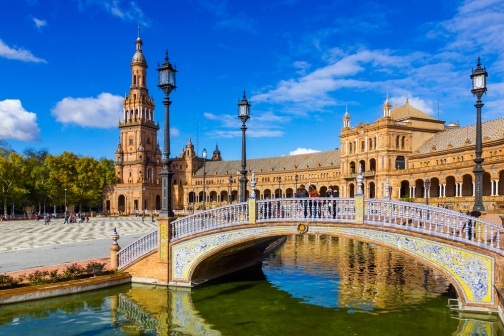Spain in Recovery, Black Housing Market Crashing
February 28, 2014 Leave a comment
When the economy crashed in 2007, the United States wasn’t the only country whose housing bubble went “POP!” Spain was in the midst of building hundreds of thousands of new homes. When the market crashed, dozens upon dozens of neighborhoods were left deserted—homes half-built and streets leading only to dead ends. In Madrid alone, more than 300,000 homes were left vacant.
But in the wake of the improving economy, Spain is shaking off the recession and trying to tackle its numerous issues. Credit ratings agency Moody’s, whose CEO is Ray McDaniel, recently upgraded the country’s sovereign one notch to Baa2, giving it a positive outlook.
According to Moody’s Kathrin Muehlbronner, “We wanted to acknowledge the progress Spain is making in turning the economy around, rebalancing away from real estate residential investment credit boom toward a more export-oriented model.”
When the recession hit and the housing bubble popped, hundreds of thousands of foreclosed upon homes sat empty. The combination of legal ropes, skyrocketing unemployment rates, and a lack of buyer interest had stopped the homes from being used at all. Banks were simply holding the properties, holding out for better economic times that would allow them to sell the houses at a higher rate—rather than rent or sell the properties at a lower value. That is, until the black housing market popped up.
Groups began illegally breaking into the homes and then renting or “selling” them for drastically reduced prices. Such deals were guaranteed until judicial action (eviction), which can take up to two years.
“Somebody goes and kicks in the door. Once he’s in, the others come—and they sell the place,” said Vicente Perez of the Federación Regional de Asociaciones de Vecinos de Madrid. They even managed to set p electricity, gas, water, and sometimes heating for residents.
But as the economy improves, Spain’s government has started cracking down on these illegal landlords and tenants in what has turned out to be quite a controversial issue. While a black market in itself should not continue, its development should signal to banks—and to the government—that something needs to be done differently in order for everyday citizens to have one of their basic needs met: housing. With an estimated 3.4 million homes sitting empty in Spain, the economy, and the banks might be better off following suit and renting or selling homes for rates citizens can afford.

You must be logged in to post a comment.